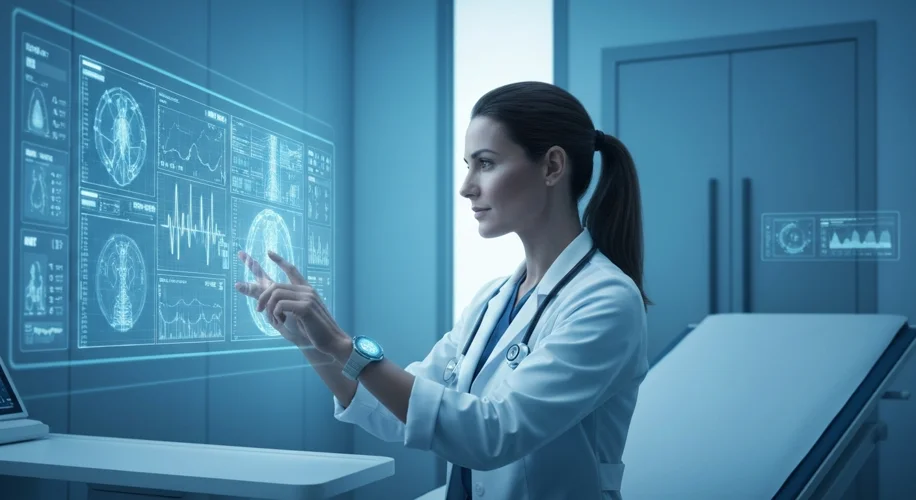Okay, so hear me out… the future is wild. As of August 28, 2025, we’ve got a new player in the medical field, and it’s not human. A recent study dropped the news that GPT-5 has achieved some seriously impressive accuracy on medical question-answering benchmarks. And get this: it’s even outperforming human experts in multimodal reasoning.
What does that even mean? Basically, GPT-5 is getting way better at understanding and reasoning about different types of medical information – not just text, but potentially images, charts, and other data too. This kind of advancement is huge for how doctors might get help with diagnosing and treating patients in the future.
Think about it: Imagine a system that can sift through a patient’s entire medical history, cross-reference it with the latest research papers, and even analyze medical imaging, all in seconds. That’s the kind of potential we’re looking at. This isn’t about replacing doctors, but about giving them super-powered tools to make better, faster decisions.
This study is a massive indicator of how AI is rapidly evolving beyond just writing code or generating text. We’re talking about AI tackling complex, real-world problems where accuracy and understanding are absolutely critical. It’s a bit mind-blowing to think that a machine learning model could grasp medical concepts so thoroughly that it surpasses the knowledge of seasoned professionals in certain tests.
This leap forward could mean better diagnostic tools, more personalized treatment plans, and even faster breakthroughs in medical research. We’re still in the early days, of course. There are tons of ethical considerations and practical hurdles to clear before AI becomes a common fixture in every clinic. But the fact that GPT-5 is hitting these milestones? That’s a sign that the future of healthcare is going to look very different, and potentially much more effective, very soon.

